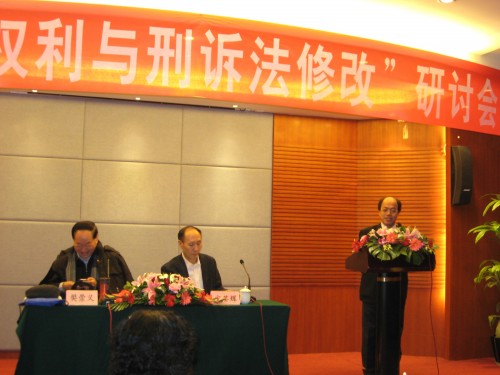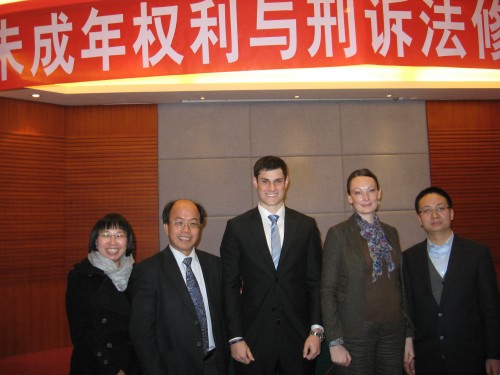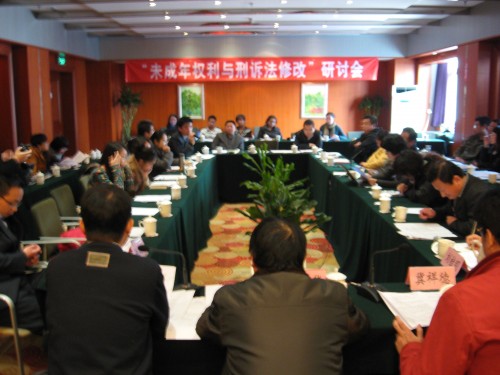
This past weekend, beginning on Saturday, January 7, 2012, as some of the winter season’s first snow fell, International Bridges to Justice (IBJ) held a juvenile defense training seminar in coordination with China’s Democracy and Rule of Law Magazine at the Friendship Hotel in Beijing. The event was part of both IBJ’s Defense Empowerment Corps. (DEC) Program, as well as it’s Juvenile Justice Program. Sessions on Saturday and Sunday were well attended, with 39 people participating; including four DEC partners from Tianlan Law Firm, a representative of IBJ’s Clinical Program, as well as lawyers, professors, judges, and prosecutors representing several of the country’s top legal institutions. Also in attendance were several lawyers from Beilin, China, where IBJ is developing a new Juvenile Justice pilot project. The program started on Saturday morning, with an informational lecture about the upcoming criminal procedural law (CPL) amendments. Fan Chongyi, an esteemed professor and doctoral tutor from the Chinese Procedural Law Research Center, explained that the amendments to the CPL will take into account international standards and developments, and also must solve some of the present practical problems that China faces.
The afternoon session was highlighted by additional lectures discussing further developments of juvenile law in China. The next day, attendees participated in a roundtable discussion. The roundtable was composed of two sessions: First, there was a discussion on what effects China’s new procedural law will have on juvenile cases. Professor Yao argued for a need to increase education, in coordination with the developments in procedure. He believes that the “juvenile” definition ought to be expanded to not only include children up to 18 years old, but also youths, such as those studying in university, as well. In this way, “juvenile” criminal law can be combined to define youth not only physically, but also socially and psychologically.
There was then a heated, but cordial, discussion about how China ought to learn from the juvenile legal systems in the United States and Hong Kong, both which recognize that juveniles differ from adults, and have laws reflecting these differences.
The second part of the roundtable was a discussion on a specific case, allowing participants to argue evidentiary issues. And, because the defense attorney who actually argued the case in court was present at the event, it made for an even more lively debate. Though there were no conclusive findings for the case, participants were able to learn strategies for arguing cases, and came away with several considerations concerning juvenile law.
Follow IBJ China's activities using our Twitter handle, @IBJChina


